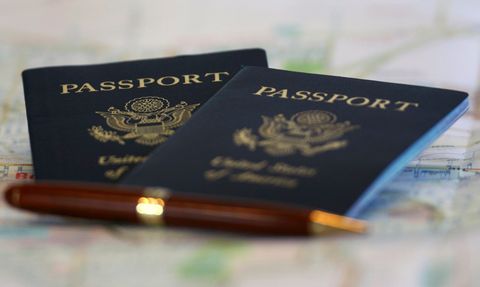Citizenship
A person can become a US citizen in two ways: by birth in the US or birth abroad to US citizens, which is generally an automatic citizenship, or by naturalization, which requires an affirmative application and compliance with the statutory eligibility requirements.
Eligibility for Citizenship
- A person can obtain US citizenship if born in the US , in certain territories under the control of the US , or persons born in unincorporated territories like Puerto Rico , Guam and the US Virgin Islands.
- US citizenship may also be conveyed when child is born outside of the US where one or both parents are US citizens.
If only one parent is US citizen, s/he must have resided in the US (be physically present) for at least 5 years (at least 2 after the age of 14) before child was born and must apply for citizenship before the child turns 18 years old. Derivative citizenship may also be transmitted from a citizen grandparent (citizen parent of citizen parent) in cases where the citizen parent cannot satisfy the physical presence requirement.

Eligibility for Naturalization
Applicants for naturalization must meet the following qualifications:
- Be a lawful permanent resident;
- Be at least 18 years of age, unless person served in the military during the designated periods stated in INA 329(a), 8 USC 1440(a);
- Have satisfied five years of continuous residence (a) subsequent to the lawful admission for permanent residence (b) immediately preceding the filing of the application. If married to a US citizen, the residency requirement is three years. The couple must be married and "living in marital union" for at least three years and US citizen spouse must have been US citizen for three years.
- Be physically present in the US for at least one-half of the five years (30 months) preceding the date of the filing of the application (18 months if based upon marriage to US citizen);
- Reside in the State or INS district in which the petition is filed for at least three months;
- Maintain residence in the US from the time of filing the application until s/he acquires citizenship;
- Not be absent from the US for a continuous period of more than one year, with the exception of certain employees of the US government agencies, military service abroad or international groups of which US is member. An absence of more than 6 months but less than one year raises a rebuttable presumption against the continuous residence requirement. If a person brakes the continuous residence requirement s/he can reapply 4 years and 1 day following the date of return to the US to resume residency.
- Must be a person of good moral character for 5 years preceding the application through the administration of the oath of allegiance. INA section 101(f) lists certain classes of persons ineligible for lack of "good moral character";
- Make the oath of renunciation and alliance as set forth in INA section 337(a), 8 USC 1448
- Not otherwise be barred as subversive, member of the communist party, deserter during war who was convicted in court martial, subject to deportation order or applied for and received an exemption or discharge from training or service in the Armed Forces or National Security Training Corps on the ground of being a foreign alien;
- Demonstrate certain literacy requirements, elementary level in the English language (some exceptions apply), knowledge of fundamentals in US history and government (special considerations apply in certain cases, eg, mentally disabled persons, over 65 years of age, etc).
An applicant for naturalization must file form N-400 plus filing to his/her local USCIS district office.